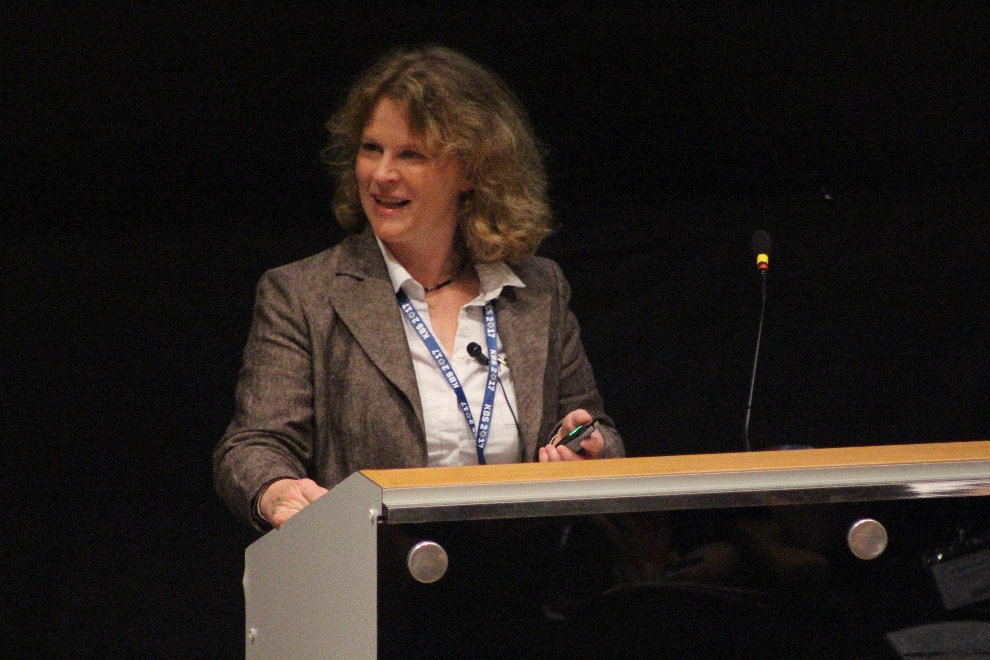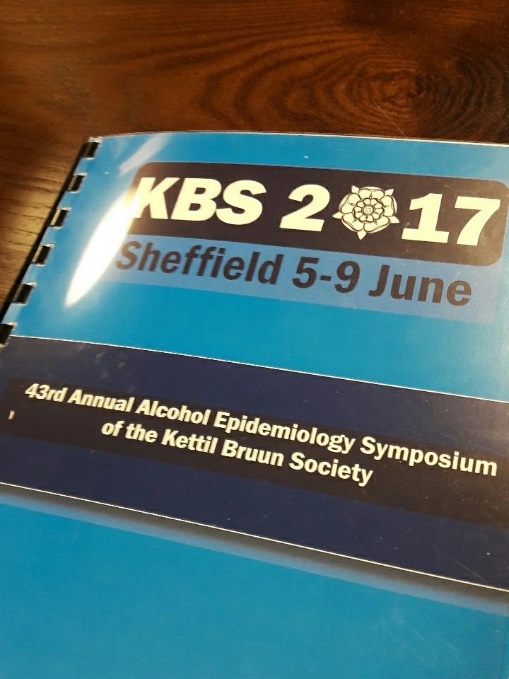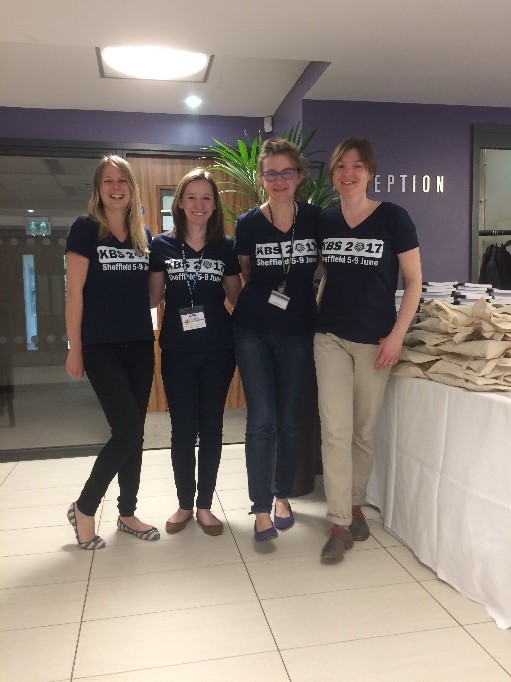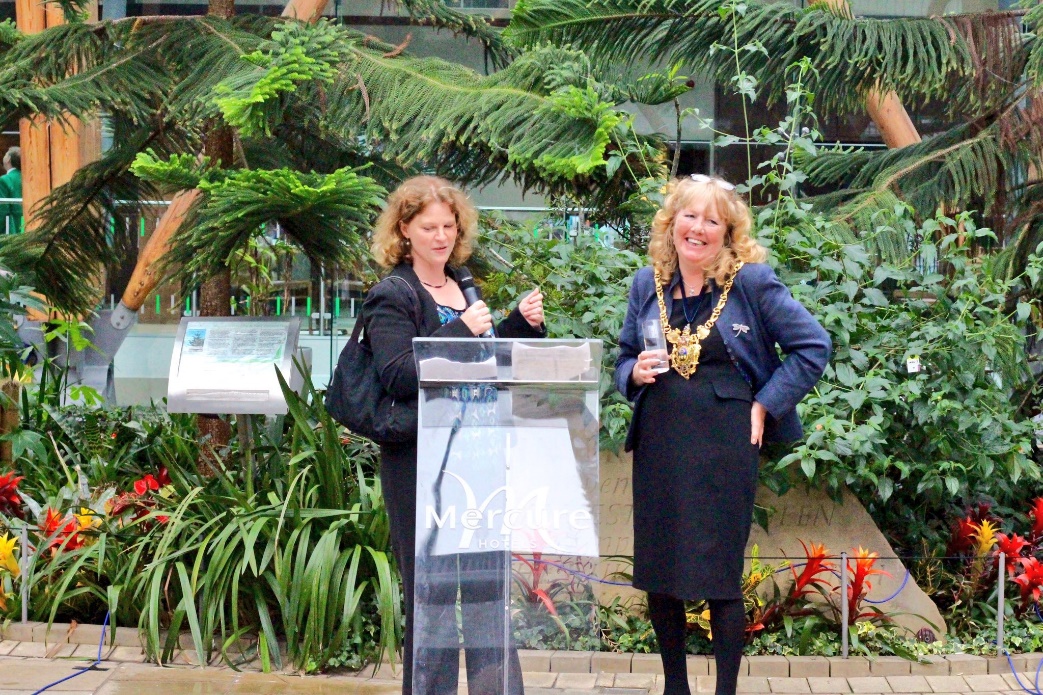The Kettil Bruun Society for Social and Epidemiological Research on Alcohol (a real mouthful – so for short, it’s usually called KBS) met for the 43rd time in Sheffield from 5-9 June 2017. A fair bit of effort, creativity and fun had gone into trying to make this conference a great experience for everyone. The hard work paid off, and around 250 delegates from every part of the world flocked to Sheffield.
The conference
KBS is somewhat unusual in that the papers have to be on work in progress rather than polished end products, and are delivered by junior and senior presenters on a level playing field. There are no invited key note speeches and the like – everyone gets 10 minutes, and that’s that. Each 90-minute session contains three or four papers, and every two papers are followed by 10 minutes of live peer review (when discussants, who see the papers in advance of the conference, put in a lot of work to help authors improve their papers or provide ideas of new avenues for their research ideas) and audience questions. I suspect this must have saved me any number of rejections by journals over the years, and hearing literally hundreds of people share their comments with the audience gives you a very good idea of how the usually hidden process works.
The following is a list of session topics at this year’s conference, loosely grouped by thematic content:
 Major topic area: Alcohol consumption, drinking patterns & trends
Major topic area: Alcohol consumption, drinking patterns & trends
Epidemiology and youth drinking
Trends in adult drinking
Lifetime drinking trajectories
Temporary abstinence and indulgence
Behaviour change & Drinking occasions
Alcohol measurement
University students’ drinking
The concept of addiction
Predictors of youth drinking in Africa
Major topic area: Alcohol-related harm
Alcohol and inequalities
New methods in alcohol research
Emergency room studies & Injuries
Unrecorded alcohol
Major topic area: Drinking cultures
Drinking cultures and practices
Drinking attitudes and perceptions
Contexts of risk-taking
Gender and sexuality
 Major topic area: Treatment and interventions
Major topic area: Treatment and interventions
Treatment systems, access and barriers
Treatment users and other special populations
Screening and brief interventions
Web-based intervention
Major topic area: Alcohol and the family
Gender and drinking in pregnancy
Effects of parental drinking
Parenting and industry activities
Family and social influences on drinking
Harm to others: Children
Harm to others: Partners and close contacts
Major topic area: Policy and interventions
Directions in alcohol policy
Marketing
Availability
Pricing
Studying the industry
Framing the policy debate
University and school policies
Interventions in the night-time economy
International Alcohol Control Study and Global Health
Harm to others: populations and policy
Project meetings and workshops
The weekend before the conference and lunchtimes are traditionally times when groups of collaborators on big international projects can meet face-to-face, and KBS Sheffield was no exception. We also facilitated a number of workshops on topics of mutual interest.
GENACIS (Gender, Alcohol, and Culture: An International Study), GENAHTO (Gender and Alcohol’s Harm to Others), and IGSAHO (International Group for the Study of Alcohol’s Harms to Others) held meetings and workshops to discuss recent cross-national research on alcohol’s harm to others. International leads in the International Alcohol Control Study (IAC) also met to plan their future work and outputs, as did the advisory board for a study on Industry influences in research.
There was two very well-attended lunchtime meetings: an Early Career Researcher Meeting, and one organized by our major sponsor, the Institute for Alcohol Studies on Walking the advocacy tightrope: What role can researchers play in the alcohol policy process?, and on Local Alcohol Availability & the Night Time Economy.
Social programme
The social side is equally important to most of us – on Monday, a conference reception was held in the beautiful winter gardens where the Lord Mayor of Sheffield, who has a professional background in addictions, welcomed delegates and the Dore Male Voice choir provided the evening’s entertainment. On Tuesday, lots of attendees braved the rain to play in the now traditional football match (instructions were limited to: “open to all. Bring a red or white T-shirt and try to get the ball into the right goal”). On Wednesday afternoon, participants were able to choose between several social tours: a trip to Chatsworth House and Gardens, a hill walk in the Peak District and visit to the Castleton caverns, or a shorter outing to Kelham Island Brewery with a pub visit. Thursday evening’s conference dinner was made rather exciting by also being the night of the General Election, with people moving between dance floor and screens till the early hours.
Final comments and a thank you
Finally, we would like to thank our sponsors, the Institute for Alcohol Studies, Alcohol Research UK, and the Society for the Study of Addiction. Your support meant that we could offer financial assistance to a large number of scholars from LAMI countries, and we have had many emails thanking us for this help and telling us just how important this conference has been to their career development.
KBS is a great conference for networking, attracting many of the key people in alcohol policy and epidemiology research internationally and, more importantly, folk tend to be generous with their knowledge and very happy to forge new connections and make “newbies” in the field welcome.
See you next year in Chang Mai, Thailand May 28 – June 1, 2018!
Professor Petra Meier (on behalf of the organizing team)
Director of the Sheffield Alcohol Research Group
Programme Director Wellcome Trust Doctoral Training Centre in Public Health Economics and Decision Science
ScHARR, University of Sheffield, 30 Regent Street, Sheffield, S1 4DA, UK
email: p.meier@sheffield.ac.uk
The opinions expressed in this commentary reflect the views of the author and do not necessarily represent the opinions or official positions of KBS.
The opinions expressed in this commentary reflect the views of the author(s) and do not necessarily represent the opinions or official positions of the Society for the Study of Addiction.